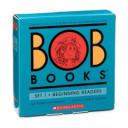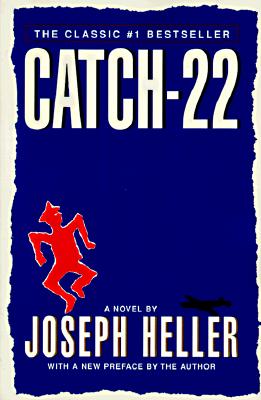Once upon a time, I used to write 10-pages-in book reviews. I haven’t written one in a very long time, and a large part of the reason for that is that I’ve spent the last six months immersed in the seven books that comprise Stephen King’s epic Dark Tower series. I got the first four books for Christmas, and settled in to read them just after I finished the Phillip Pullman His Dark Materials trilogy. (It was, in retrospect, apparently a dark Christmas.) It was prolly mid-January when I turned the first page of The Gunslinger, and I was reading book three, The Waste Lands, while waiting for the pitocin to ramp up my contractions in the delivery room when Lucas was born. I took a bit of a breather from reading for those first blurry six weeks or so of his life, and have been charging headlong through to the end of the series since then.
To steal a phrase: what a long, strange trip it’s been.
I loved these books. They moved me, they inspired me, and they gave me the creeping willies more than once. Hell, more than a dozen times. They also deeply annoyed me at times, and I rolled my eyes in exasperation in a few places. I don’t think anyone can maintain perfection through a full novel, let alone seven of them, but much like JK Rowling’s Harry Potter books, this series was on whole much more good than bad, and the characters and the stories both got deep under my skin and into my head. Especially as I rolled through the last couple of books, I frequently found myself wanting to reach out to Stephen King somehow — to e-mail him, to give him a call, to pace back and forth in front of his fence for a while until he came out for a bit of a palaver*. I wanted to know more, to chew the fat about these characters and this world, to have the chance to savour them just a little bit more.
So what are the books about? This dude named Roland, who lives in a world like ours but not quite ours, is on a quest to the Dark Tower. That’s it in less than 25 words, but it takes about 5,000 pages to get there. It’s about an obsessed man’s single-minded quest, but also about love and friendship and fear and some nasty things that make squelchy noises in the dark — this is, after all, a work by Stephen King. If you’ve read a lot of King’s books, you’ll recognize visiting characters from Hearts in Atlantis, ‘Salem’s Lot, The Stand and a whole whack of others. Towards the end, there’s a surprising homage to the Harry Potter books, and even King himself makes an appearance as a character.
As I’ve written before, I avoided these books for many years. I’d see a new Stephen King book on the bookstore shelves, and then sigh in dismay. “Ugh, another stupid ‘Gunslinger’ book. Bah!” and I’d turn away. In a way, I’m glad I was late to these books, as I truly loved being immersed in the world of the Dark Tower so completely, and for such a long time. The books are set, as I said, in a world like ours but not quite like ours. Eventually, we find out that this world intersects ours, and that there are innumerable parallel worlds (another neat crossover with the central idea of Pullman’s trilogy.) The story weaves back and forth through wheres and whens in this world and others. King has not only sketched a set of alternate universes, but has coloured and contrasted them with their own histories, customs and linguistic quirks. I think this was my favourite part of these books, how rich and textured the worlds are, and after a while it felt less like reading the books and more like inhabiting the worlds. You know how sometimes when you’re reading a fantasy book, it’s like there is a little bit of scenery sort of half-imagined directly around the characters like the shadow of a spotlight, but everything else is kind of hazy? I felt like I could crawl right into these books and the scope of the world(s) around me would just go on forever.
I was fascinated by the fact that this series took Stephen King the best part of his life to write. He started it in 1970, before Carrie was written or published, and finished it a quarter of a century later in 2003. I think that fact contributes to the sprawling, epic feel to the books. In a way, Roland the Gunslinger ages and matures in Stephen King’s real time. Time is major theme in the books, almost a character in its own right.
Stephen King says in the forward to the books that what he wanted to do as a young writer was get inside peoples’ heads. He’s always been able to do that to me, always been able to crawl deep into the tiniest hidey-holes of my soul and shine a light on the bits that I try hard not to think about. In the Dark Tower series, he’s done it again. It’s been called his magnum opus, and I can see why. As I paged relentlessly through the last book of the series, I watched the dwindling amount unread pages with dismay. Now that it’s done, I think I’ll head out into the interwebs to see if I can find a discussion group or fan site somewhere. I’m deeply hooked on Roland and his ka-tet and his quest, and not quite ready to give them up just yet.
*Actual goosebumps raised on my arms when I was reading the afterward to the very final book, and King spoke about how much he values his privacy and how he intentionally obscured details of his location even as he incorporated himself into the stories so as to protect his ever-eroding privacy. To me, it was almost like a personal “thank you” for not disturbing his privacy when I was stalking him that sunny Saturday morning last year. Chills.



